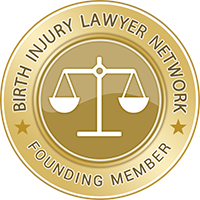North Dakota Birth Injury Lawyers
North Dakota Medical Liability/Malpractice Statutes of Limitation
All states have set deadlines for when a patient may file a civil claim, known as statutes of limitation, for medical liability and malpractice claims. The majority of the states have special provisions regarding the time limits for minors to file medical liability and malpractice claims. Twenty-two states have special provisions regarding foreign objects.
N.D. Cent. Code §28-01-18 and §28-01-25 Within two years after claim for relief has accrued but not more than six years after act unless concealed by fraud. Minors under age 18: the time before majority is not a part of the time limited for the commencement of the action, but the extension of the limitation is limited to 12 years.
North Dakota Medical Liability/Medical Malpractice Laws
Damage Award Limit or Cap
§32-42-02. $500,000 limit on noneconomic damages.
§32-03.2-08. Economic damage awards in excess of $250,000 subject to court review.
Limits on Attorney Fees
§28-26-01. The amount of fees of attorneys in civil actions must be left to the agreement, express or implied, of the parties.
Periodic Payments
§32-03.2-01 et seq., If an injured party claims future economic damages for continuing institutional or custodial care that will be required for a period of more than two years, at the discretion of the court any party may request the trier of fact to make a special finding of the total amount awarded for this care, separate from other future economic damages, and if a separate award is made, any party may make periodic payments for this care in an amount approved by the court, provided payment of the total award for this care is adequately secured. The adequacy of the periodic payments within the limit of the total award will be subject to review by the court from time to time, and upon the death of the injured person the obligation to provide for further continuing care shall terminate.
Patient Compensation or Injury Fund
None provided.
Medical or Peer Review Panels
§23-34-01 et seq. Peer review organizations
§23-34-02.1. Any report, data, data compilation, analyses, or summary that is generated by a peer review organization and made available to the state department of health or the public by the state department of health, the North Dakota healthcare association, or the North Dakota hospital foundation, may not be introduced into evidence, for any purpose, in any civil or administrative proceeding.
§23-34-03. Peer review records are privileged and are not subject to subpoena or discovery or introduction into evidence in any civil or administrative action, except: a. Records gathered from an original source that is not a peer review organization; b. Testimony from any person as to matters within that person's knowledge, provided the information was not obtained by the person as a result of the person's participation in a professional peer review; or c. Peer review records subpoenaed in an investigation conducted by an investigative panel of the board of medical examiners pursuant to chapter 43-17.1 or subpoenaed in a disciplinary action before the board of medical examiners pursuant to §43-17-30.1.
Any peer review records provided to an investigative panel of the board of medical examiners or introduced as evidence in any disciplinary action before the board are confidential and are not subject to subpoena, discovery, or admissibility into evidence in any civil or administrative action, and are not public records subject to §44-04-18 and §6 of article XI of the Constitution of North Dakota.
Any peer review records provided to an investigative panel of the board of medical examiners or introduced as evidence in any disciplinary action before the board are confidential and are not subject to subpoena, discovery, or admissibility into evidence in any civil or administrative action, and are not public records subject to §44-04-18 and §6 of article XI of the Constitution of North Dakota.
§23-34-06. A person furnishing peer review records to a peer review organization with respect to any patient examined or treated by a health care provider is not, by reason of furnishing the records, liable in damages to any person or for willful violation of a privileged communication.
A health care organization, health care provider, or member of a peer review organization is not liable in damages to any person for any action taken or recommendation made regarding a professional peer review, if the health care organization, health care provider, or member of the peer review organization acts without malice and in the reasonable belief that the action or recommendation is warranted by the facts known to the health care organization, health care provider, or member of the peer review organization.
A health care organization, health care provider, or member of a peer review organization is not liable in damages to any person for any action taken or recommendation made regarding a professional peer review, if the health care organization, health care provider, or member of the peer review organization acts without malice and in the reasonable belief that the action or recommendation is warranted by the facts known to the health care organization, health care provider, or member of the peer review organization.
Find an Experienced Birth Injury Attorney in your Local Community
 Find A Lawyer in Columbus, OH
Find A Lawyer in Ohio
Find A Lawyer in Any State
Find A Lawyer in Columbus, OH
Find A Lawyer in Ohio
Find A Lawyer in Any State
